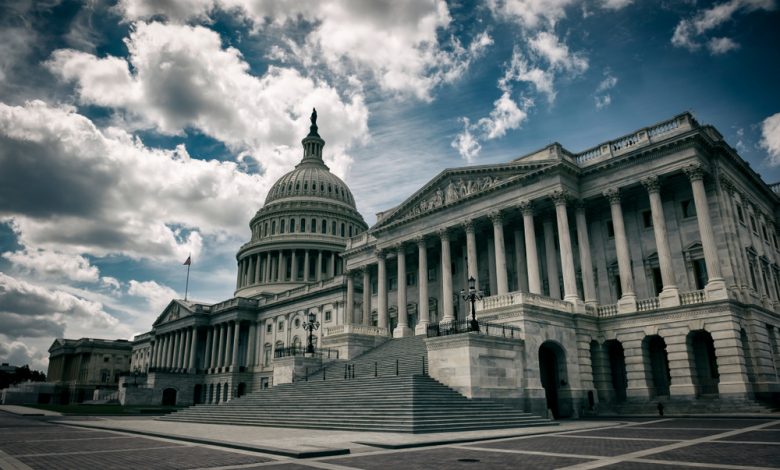
On January 18th, 2022, Stephen Colbert - speaking with Sen. Elizabeth Warren - was venting his frustration with Sen. Kyrsten Sinema and Sen. Joe Manchin. Colbert was angered that these two Democrat Senators voted with the Senate Republicans to protect the procedural "speed bump" known as the filibuster. (For general information purposes only: the filibuster requires that for non-financial bills to pass the Senate should the filibuster be invoked), 60 "yes" votes, not the simple majority of 51 votes, are needed.
The filibuster rule was created to force the Senate to reach a "truer" consensus that would represent something more than the will of a single political party. It is also intended to help prevent knee-jerk reactionary legislation from moving quickly through Congress without debate and an opportunity to consider the possible consequences of that legislation. Plus, it has the added bonus of protecting minority voices who stand against the bill.
Colbert, like a lot of Democrat officeholders, wanted the filibuster out of their way as they looked to pass a bill to set national standards on all elections that they are very deceptively calling a "voter's rights" bill. A rule change to remove the filibuster was needed to pass the voting bill due to total opposition from the Republicans in the Senate. A 50/50 split (not that I believe all 50 Democrats support this nationalization of elections anyway) with a tie-breaker vote from Kamala Harris would not be enough for the Democrats to get their way. So, in his shared leftist frustration, Colbert called for getting rid of the Senate.
Putting aside for the moment that even if this bill passed the Senate and were signed by the cognitive decline patient currently residing at 1600 Pennsylvania Avenue (having already passed the Democrat-dominated House), the new law would still face substantial judicial challenges. The U.S. Constitution has made clear that it is up to the states to administer their elections. But more on States and the Senate later. Two questions arise from Colbert’s rant, which is certain to become a leftist talking point. "Is the Senate the most anti-democratic institution in our nation?" "Should the Senate be abolished?"
Let's start with the first question. Is the Senate the most anti-democratic institution in our federal government? I would make the case that the unelected bureaucracies would win that distinction, so I'm going to say no. The political left keeps whining about anti-democratic features of our government because direct democracy (also known as mob rule) is the easiest way to stir up the public's emotions and, through the masses, get their way. This is also why the United States does not have a democracy but a federated constitutional republic where the federal government is limited, state's rights and minority voices are protected, and safeguards are in place to avoid, or at the very least slow, tyrannical creep.
When the U.S. Constitution was written and then later ratified, the idea of a well-defined (and limited) role of each branch and those branches being "co-equal" was considered the simplest way to ensure that checks and balances would work to protect everyone. An extension of that idea was to separate the Legislative branch into two distinct entities with different objectives. Based on the model of the British Parliament with one big difference, the House of Representatives (like the House of Commons) was meant to be directly representative of the general population. The Senate, however, was designed to represent the interests of the states, to protect state's rights against overreach from the federal government.
The Framers of the Constitution understood that each state had different needs and populations. They believed that it would be infinitely unfair for states with denser populations concentrated in a few larger cities to make decisions for states with a more rural existence without regard to the wishes of those states. (It would be a lot like taxation without representation if you will.) Not only would it be unfair, but it would also be a disincentive for potential future states to join the union. The U.S. was meant to be a federation of states that were different but agreed on the fundamental reasons for leaving the British Kingdom (mostly individual liberty).
Balances between the will of majorities and the rights of minorities were always a focus of the Founders. Without protecting the minorities, there is no such thing as individual liberty. The point here is that the Senate was not created to be particularly "democratic." The first 125 years of the republic, Americans did not vote for Senators. State legislatures elected senators because they were selected to represent the state's interests. The people were electing the members of the House to represent them.
It was not until the ratification of the 17th Amendment in April of 1913 that the selection of Senators changed to popular vote. (Many now point to this change as the first major blow against state's rights.) With this in mind, it is, at best, either historically ignorant or disingenuous to expect strict adherence to what Colbert or other leftists would label as "democratic" by any branch of the federal government. But rules designed to protect the minority are only an issue for the left as long as they are not the majority.
The second question is perhaps a little more challenging to answer. It becomes more of a matter of opinion. The left might say, "Yes! End the Senate." because they are not getting their way at the moment. (But to be fair, if the political left had their way, they would burn it all down. They are not big fans of the obstacle that the Constitution is for their power grabs.) Some on the right might say, "Yes, get rid of it because it no longer fills the role of protecting state's rights that it was designed to do." In contrast, others on the right might only want to keep it because it is the primary means that the Republicans can slow the so-called "progressives" radical agenda.
I would recommend we keep the Senate, but with a caveat. I would prefer a reset that focused Senators on representing the needs of their home states rather than the national party's agenda (no matter how it may affect their home state). If we need to repeal the 17th Amendment to make that happen, then so be it. If that reset is too much to ask for, then I can at least take some comfort in the fact that if someone like Colbert is upset, something is still working, even if it is working for the wrong reasons.





Leave a Reply
Thank you for your response.
Please verify that you are not a robot.